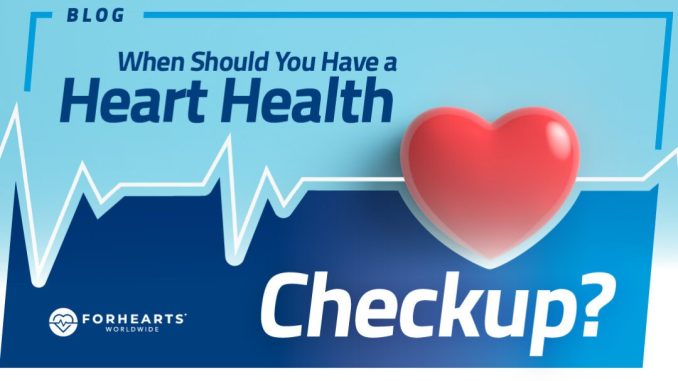
It’s a common misconception that heart health concerns only become relevant once you reach middle age or beyond. The truth, however, is that the foundation for cardiovascular well-being is laid much earlier—often starting in your 30s. This decade is a pivotal time when lifestyle choices begin to show their cumulative effects, setting the trajectory for how your heart and blood vessels will fare in the decades to come. For anyone invested in long-term health, productivity, and quality of life, understanding why cardiovascular health starts in your 30s is both timely and essential.
In many ways, the 30s represent a turning point between youthful resilience and the gradual wear and tear of aging. During your 20s, the body often operates at peak efficiency, masking early warning signs of unhealthy habits. But as you enter your 30s, subtle physiological changes begin to emerge. Arteries can start to lose some of their natural elasticity, blood pressure may creep upward, and cholesterol levels often begin to shift. These changes don’t happen overnight, but if left unchecked, they accumulate and can lead to serious cardiovascular problems later in life.
One reason this decade matters so much is because it’s when the consequences of your daily choices—what you eat, how active you are, whether you smoke or manage stress—begin to influence your heart’s condition. For example, consider someone who indulges regularly in processed foods high in saturated fats and sugar, while leading a sedentary lifestyle. In their 30s, they might start to notice their weight creeping up and blood pressure climbing, even if they feel fine day to day. These early signals are red flags, indicating that their cardiovascular system is under strain, often without any obvious symptoms.
The significance of this stage is further underscored by what happens inside the arteries. Atherosclerosis, or the buildup of fatty plaques along arterial walls, can begin silently in your 30s or even earlier. This condition narrows the arteries and impedes blood flow, setting the stage for heart attacks and strokes years down the line. Because it develops gradually and often without symptoms, many people remain unaware of the damage accumulating inside their bodies. That’s why preventive measures taken during your 30s—such as regular health screenings—are critical for catching these issues early.
Stress, a hallmark of many people’s 30s, also plays a vital role in cardiovascular health. Balancing career demands, family responsibilities, and social life can elevate stress hormones like cortisol, which, when persistently high, contribute to inflammation and increased blood pressure. The long-term effect is a higher risk of heart disease. In fact, studies have shown that chronic stress accelerates the progression of cardiovascular problems, making stress management a key component of heart health during this phase of life.
One might wonder why this decade doesn’t get more attention in the broader conversation about heart health. The answer lies partly in the invisibility of early-stage cardiovascular problems and partly in how public health messaging often targets older adults or those with existing conditions. However, shifting the focus to younger adults is crucial because heart disease doesn’t suddenly appear in later life—it’s the result of decades-long processes that begin much earlier.
Fortunately, the 30s also represent a golden opportunity for intervention. The heart and vascular system retain a remarkable ability to recover and adapt, especially if positive lifestyle changes are introduced before damage becomes severe. For instance, adopting a balanced diet rich in fruits, vegetables, whole grains, and healthy fats can help normalize cholesterol levels and reduce arterial inflammation. Regular physical activity improves heart muscle strength, lowers blood pressure, and helps maintain a healthy weight. These changes are not only effective but also tend to become easier to maintain when integrated into daily routines at this stage of life.
Practical examples abound. Take the story of a 35-year-old professional who, after a routine physical, learns that their blood pressure is elevated and their cholesterol is creeping toward unhealthy levels. Rather than ignoring these findings, they commit to small but consistent changes: cooking at home more often, taking brisk walks after work, and prioritizing sleep. Within months, they see improvements that not only reduce their risk of heart disease but also enhance their energy and overall well-being. This scenario highlights how action in your 30s can yield benefits that ripple through both your personal and professional life.
Beyond individual effort, the workplace can also play a critical role in supporting cardiovascular health during this decade. Many companies are now recognizing the value of wellness programs that encourage healthy habits, stress reduction, and regular health checkups. These initiatives can be especially valuable for employees in their 30s, who often juggle demanding careers and family life. By fostering environments where heart-healthy behaviors are the norm rather than the exception, businesses contribute to a healthier, more engaged workforce.
In conclusion, cardiovascular health truly starts in your 30s because this decade marks the beginning of physiological changes and lifestyle patterns that shape your heart’s future. While the symptoms of heart disease may not manifest until much later, the risk factors often take root quietly during these years. The good news is that the 30s also offer a prime window for preventive action, where informed choices can reverse or slow the damage and set you on a path toward long-term health. For anyone looking to protect their vitality and productivity, understanding and prioritizing heart health during this crucial period is one of the smartest investments you can make.